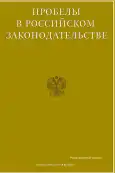Issues of Interdepartmental Cooperation on the Prevention of Extremism and Terrorism
- Autores: Kuchmezov R.A.1
-
Afiliações:
- Krasnodar University of the Ministry of the Interior of Russia
- Edição: Volume 16, Nº 4 (2023)
- Páginas: 213-217
- Seção: General theoretical, criminal-legal and other problems of Countering extremism and terrorism. Problems of preventing extremism and terrorism
- URL: https://journal-vniispk.ru/2072-3164/article/view/250385
- EDN: https://elibrary.ru/QQOAVC
- ID: 250385
Citar
Resumo
The purpose of this study is to study the impact of interdepartmental cooperation on the prevention of extremism and terrorism. Today in Russia there is a complex criminological situation, there are new threats from the criminal world, new types of crimes. There is also an increase in the level of the terrorist threat. Terrorist acts, as a rule, have serious consequences. Groups are not only gradually expanding the geography of their activity, but are also active on the Internet. They attract new members, hire fighters, receive funding, cooperate with cells located in different parts of the world. All this can be done remotely, which makes it difficult to identify and catch criminals.
The objectives of the study are to analyze ways to improve interdepartmental cooperation on the prevention and prevention of extremist and terrorist activities.
The environment in which extremist movements exist is actively merging with terrorist activities. Extremists receive funding from terrorist organizations, follow their instructions, can act both inside the country and harm while abroad. From this it can be concluded that the higher the social tension, the more active radical groups begin to act. The fight against them is one of the most strategically important tasks for the law enforcement agencies of the Russian Federation. In addition, due to the joint work of different departments and the purposeful work of the Center for Countering Extremism, it is possible to significantly improve the operational situation concerning public safety. The joint work of the Ministry of Internal Affairs and other departments, timely and competent response to dangerous manifestations of extremism and terrorism will allow, if not to completely eliminate these phenomena, then significantly reduce their activity, normalize public safety in the country. At the same time, the economic, political and social situation also plays an important role, therefore, joint efforts to combat extremism and terrorism should be taken not only by law enforcement agencies, but also by the country's leadership as a whole, eliminating the reasons why radical currents appear.
Texto integral
##article.viewOnOriginalSite##Sobre autores
Rasul Kuchmezov
Krasnodar University of the Ministry of the Interior of Russia
Autor responsável pela correspondência
Email: 89286910015@mail.ru
Cand.Sci.(Pedagogics), Police Major, Senior Lecturer of the Department of Law Enforcement Organization, North Caucasian institute of professional development (branch)
Rússia, Nalchik, KBRBibliografia
- Antonova E.Yu. The use of digital technologies in the commission of terrorist crimes: problems of counteraction // In the collection: Digital Technologies and Law. Collection of scientific papers of the I International Scientific and Practical Conference. In 6 volumes. Edited by I.R. Begishev [et al.]. Kazan, 2022. pp. 6-15.
- Gutieva I.G. On the question of the emergence and development of extremism and terrorism in Russia // Eurasian Legal Journal. 2022. No. 7 (170). pp. 410-411.
- Damaskin O.V. Transformation of global civilization, modern state and law: current problems and prospects of scientific support // Modern law. 2021. No. 6. pp. 5-14.
- Kardanov A.R. Actual aspects of countering the inculcation of the ideology of extremism in the conditions of digitalization // Gaps in Russian legislation. 2022. Vol. 15. No. 4. pp. 209-213.
- Kalabuzarov T.G. Modern technologies in the field of countering terrorist crimes // Law and Law. 2022. No. 7. pp. 175-177.
- Korshunova P.V., Yarosh E.A. Improvement of prosecutorial activity on combating crime on the Internet // In the collection: Prosecutorial activity in Russia: history, theory, practice. Materials of the All-Russian scientific and practical conference dedicated to the 300th anniversary of the Russian Prosecutor's Office. Penza, 2022. pp. 164-171.
- Kodzokova L.A., Shigalugova M.H. Some aspects of cooperation in the fight against extremism and terrorism // Education and Law. 2022. No. 7. pp. 291-296.
- Novikov A.V. The current state of extremism and terrorism in the context of the development of digital technologies // In the collection: Countering terrorism and extremism in the information spheres. Collection of scientific articles of the All-Russian Conference. Moscow, 2022. pp. 176-179.
- Prudnikova K.K., Bondarenko N.A. Terrorism in the era of information technologies // Ural Journal of Legal Studies. 2022. No. 2 (19). pp. 74-80.
- Shogenov T.M. The role of modern information tools in countering the spread of terrorist threats // Gaps in Russian legislation. 2022. Vol. 15. No. 5. pp. 77-81.
Arquivos suplementares








